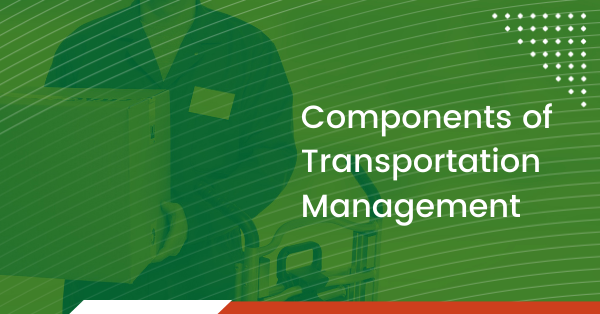What is Transportation Management?
Freight transportation is a subset of logistics management. Transportation management involves moving goods from one location to another by any mode (air, rail, barge, maritime, or road). Transportation is an expensive and emission-heavy process, making it an ideal target for carbon footprint and cost reductions. However, transportation management is vital to any business and should not be overlooked.
Why is Transportation Management Important?
Look around you- every object you see had to get from its original destination to you using some mode of transportation. Transporting freight is essential to every business, so having a solid transportation management system is important. In addition, investing in an advanced transportation management strategy can help your business stand out amongst competitors.
5 Key Components of Transportation Management Strategy
Moving freight hundreds, or even thousands, of miles away can feel like a daunting task. Thankfully, there are handy tips, tools, and technology to assist you and your business when adapting a transportation management system. PLS Logistics has compiled a list of 5 key components to keep in mind while managing freight.
1. Transportation management system (TMS)
Proper transportation management begins with a transportation management system (TMS). A TMS will automatically tender loads, track shipments, and gather and analyze historical performance data. This data, often called big data, allows a company to see what’s happening in its shipping operations. Once visibility in transportation operations is achieved, changes can be implemented to increase efficiency and customer satisfaction, reduce transportation spending, and optimize packaging or storage procedures that harm overall supply chain goals.
Implementing a TMS is one of the simplest steps to improving your bottom line. Research shows that companies who use a modern TMS can save between 5 – 10 percent in freight spend. TMSs are more user-friendly and accessible than ever before, so any size business can quickly learn and use the system.
2. Inventory Flow
Effective transportation management keeps a company’s whole supply chain running smoothly. With successful transportation execution, inventory can be kept lean and quickly moved in and out of warehouses. It improves warehouse efficiency, reduces overall lead time, and saves money on storage. Supply chain disruptions can be costly and hurt customer satisfaction and loyalty. Creating effective inventory flow with transportation management avoids damage caused by the disruption.
The inventory flow system is made up of six stages: purchase, store, use, track, reorder, and forecast. Therefore, you may have to research and experiment with different strategies before landing on the best strategy for your business. There are various inventory management strategies, but some of the most popular include just-in-time (JIT) inventory, ABC analysis, and drop shipping.
3. Sustainable Logistics
Consumers are more aware and concerned about company values than ever before. This, combined with the fact that transportation is an emission-heavy industry, means businesses must be mindful of their carbon footprint. Customers want to buy from companies that take social responsibility seriously, invest in sustainable resources, and minimize their energy consumption. An inefficient transportation strategy will increase fuel use, thus increasing a company’s carbon footprint and its impact on the environment. As a result, consumers negatively perceive your brand’s environmental awareness and influence.
4. Preferred Shipper Status
In 2021, the ATA estimated the truck driver shortage in the transportation industry had surpassed 80,000 personnel. This shortage is expected to grow due to low wages and unfavorable hours. Since there are fewer drivers to move freight, capacity is negatively impacted. As a result, shippers must compete to secure capacity and ensure their product has a spot on a pallet.
A company that has perfected its transportation processes is considered a preferred shipper and has an easier time finding capacity. Carriers want to work with reliable businesses that boost their efficiency. Optimized transportation processes allow for short dwell times and long tender lead times. Access to trucking capacity will lower logistics costs in the coming years. Additionally, it will provide a faster and more reliable service for customers.
Maintain strong relationships with your carriers to achieve preferred shipper status.
5. Customer Satisfaction
The movement between procurement and delivery can be long and complicated, but out of all the processes, transportation is the one where the company has direct contact with the customer. Last-mile logistics, the last stretch before delivery, is also complex, costly, and is often the part of the delivery that causes disruptions and delays. The point of delivery reflects the competency of the entire organization. If a company is constantly delivering products late, the customer will negatively perceive this company and will not use its services again. Keeping the right customer is crucial since it is between 5 and 25 times more expensive to gain a new customer as opposed to retain an existing one.
Transportation Management Services With PLS
Proper management of transportation can ensure high delivery performance and consistent customer satisfaction. Therefore, it is essential to choose a reliable transportation and logistics partner. PLS Logistics is a leading third-party logistics company dedicated to helping businesses with their transportation management needs. PLS provides customers with a user-friendly TMS with access to over 55,000 carriers and the ability to book and track shipments. Learn more about our transportation management services and get a quote, today!


